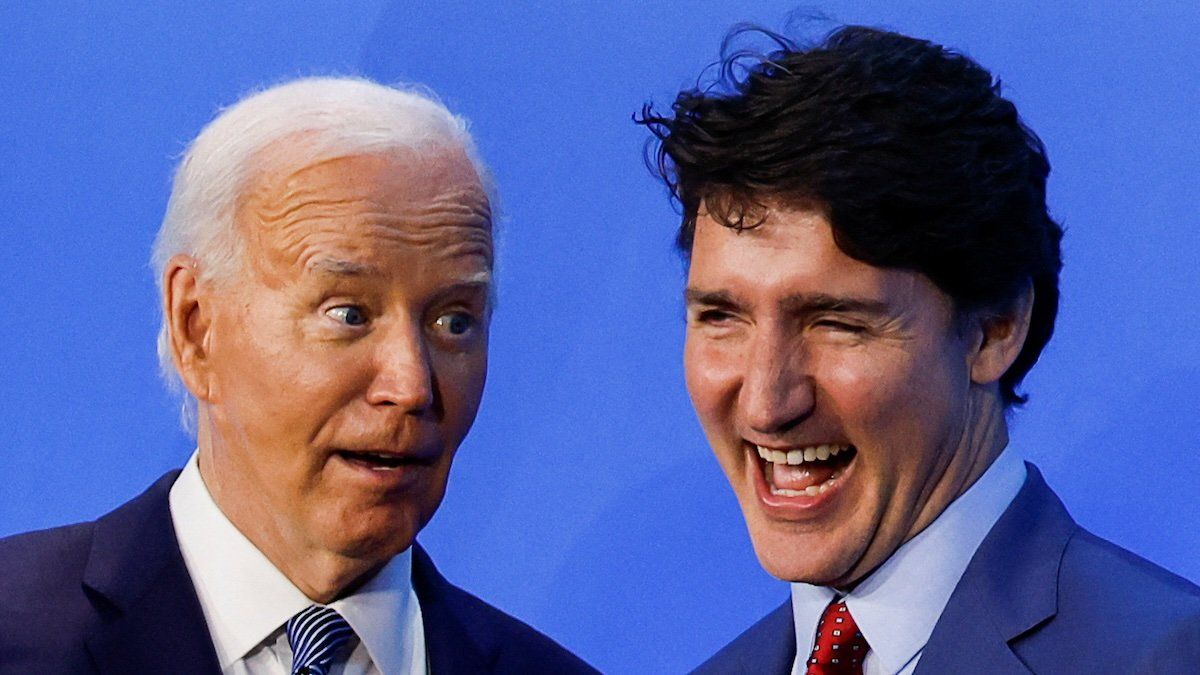For President Joe Biden right now, his biggest challenge is stepping down.
Feverishly trying to quell the internal Democrat rebellion — which actor/democratic fundraiser George Clooney publicly joined yesterday — Biden is doing interviews and working backrooms to try to hold on to power. It’s not working. Despite many allies coming forward to defend him against the so-called nervous nellies, Biden cannot contain the daily calls to step down that are coming from inside the Democratic house. Instead of fighting Donald Trump on one front, as he should be right now, Biden is fighting a two-front war, one internally and one externally, and it looks increasingly like he will lose both. The center cannot hold.
Stepping up is often seen as an act of leadership and courage, leaning into a fight against all odds. Stepping down is viewed as weak, a retreat from the arena. So it’s natural that Biden insists on stepping up and continuing to fight. That’s a given for any political leader.
But after the disastrous debate revealed how diminished Biden has become, 10 House Democrats, one senator, and countless high-profile Democratic operators like James Carville are openly trying to rebrand Biden stepping down as an act of leadership, not surrender. They argue Biden has served well and his record is strong, but that the best way to protect his legacy is to step away and let someone else defend it. They are right.
Democrats are haunted by the ghost of Ruth Bader Ginsburg. Despite deep concerns about her age and her health, the legendary Supreme Court justice refused to step down to let President Barack Obama and the Democrat-controlled Senate appoint a new justice. Instead, she kept stepping up, clinging to her post for so long that when she finally passed away at 87, Donald Trump got to replace her. In the blink of an eye, RBG’s legacy was in tatters and Roe v. Wade was overturned. It was a generational error for Democrats, and many see it being repeated with Biden.
In 2008, when Hillary Clinton was running against Obama, she released the famous “3 a.m. phone call” ad. “It’s 3 a.m., your children are safe and asleep, who do you want answering the phone?,” the baritone phone asked, before cutting to a picture of Clinton on the phone dealing with a crisis. Does anyone believe Biden could take that call now? In four years? Biden recently announced — in a shocking own goal — that he won’t be doing events after 8 p.m. so he can get more sleep. So one thinks a guy Trump has dubbed “Sleepy Joe” needs more sleep. What happens at 3 a.m. when the phone rings? Biden might not even be able to hit the snooze button.
In parliamentary democracies, there are votes of no confidence, which can bring down a government and remove a leader. It is a key check and balance on power. In the US, this doesn’t exist. A motion to vacate can remove the Speaker of the House, as we saw recently with Kevin McCarthy, but outside of impeachment, removing a president is hard. Still, the growing calls for Biden to step down — especially from people who admire and have supported him — are a de facto vote of no confidence.
The next few days are crucial for Biden as he does public interviews and leads the NATO summit to try to show the world he is still in the game and ready to lead for four more years. It will not be enough. Biden can’t interview his way out of old age anymore than Trump can promise to stop lying. These are two immutable candidate qualities. The challenge for both parties is to either accept these profound flaws of their leaders — as Republicans clearly have — and damn the consequences or … to honestly assess the situation and do something about it.
For Biden in 2024, stepping down would be his way of stepping up.
For Justin Trudeau, who is also facing multiple calls to step down, this week is a reversal: He has to answer calls to step up on national defense, and he just has. Today, Trudeau announced that Canada will finally reach the target of 2% of GDP to be spent on the military by 2032, though he has not revealed many details on how this will happen. We cover this later in the newsletter, but Trudeau clearly realizes that on the 75th anniversary of NATO, with a war raging in Ukraine and Trump possibly winning the next election, NATO laggards are losers. Hitting the 2% target is now table stakes if Canada is to be taken seriously in NATO or at the G7 or G20. But is it realistic?
As important as it is to hit the NATO target, it will not be cheap. Tens of billions of dollars will be added to the national defense budget, something the Trudeau government, or a potential Conservative government led by Pierre Poilievre, would have to find. That means either higher deficits or deep program cuts. The reason Canada has not hit the 2% mark before is simple: choices. There are more votes in health care transfer payments and social programs than in defense. But Trudeau knows that he has to make this promise to be taken seriously and to have any purchase with a future Trump administration. It is an open question to see if future governments actually fulfill it and stick to the timeline.
Is it enough to help Trudeau in the polls? No. It will make no difference. His dismal polling numbers are tied to inflation, the cost of housing, and nine years of governance, not national defense. But sometimes, even when facing calls to step down, you have to make the hard choice to step up.
Leadership is about knowing when to step down and when to step up.
